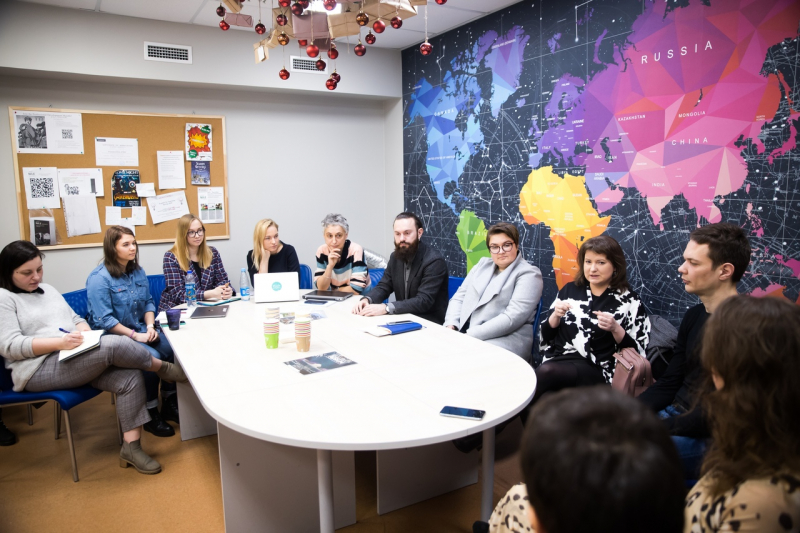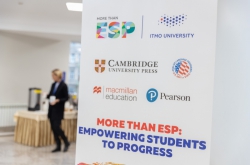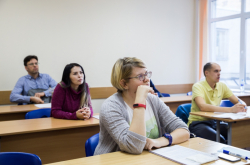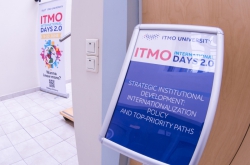EMI: what is it and why study it?
EMI, or English as a Medium of Instruction, is a method of using English for teaching academic subjects in the countries and regions where English isn’t a national language.
Applying this method is necessary if a university enrolls international students. But lectures in English are often organized for local students, too, so that they could absorb more professional terminology in English during their studies.
The EMI method was created to simplify the process of transmitting the information from a lecturer to a student by circumventing the language barrier. To this end, EMI offers different techniques of active learning, creating supplementary learning materials, and language support. Classes like these can be stressful not only for the international students for whom English isn’t a native language, but also for the lecturer, who faces the double whammy of having to comprehensively explain complex aspects of their subject in another language. That’s why the curriculum has to be adapted to uneasy conditions of how the material is presented and perceived.
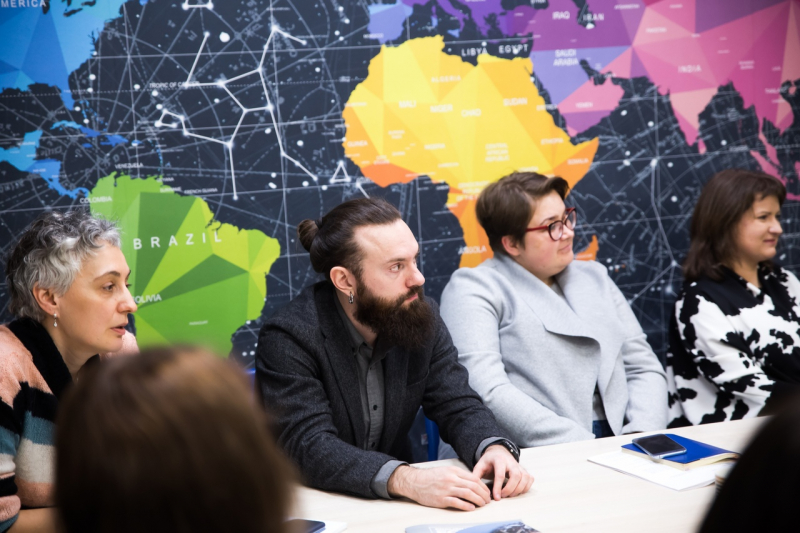
ITMO University provides its staff with courses on the EMI method. They take place once per semester and are aimed at helping the lecturers deliver English-language classes.
The internship at Boston University was a further learning opportunity for academic subject lecturers and staff of the Foreign Language Training Center, who are the ones to conduct the EMI Teacher Training Course for ITMO’s lecturers.
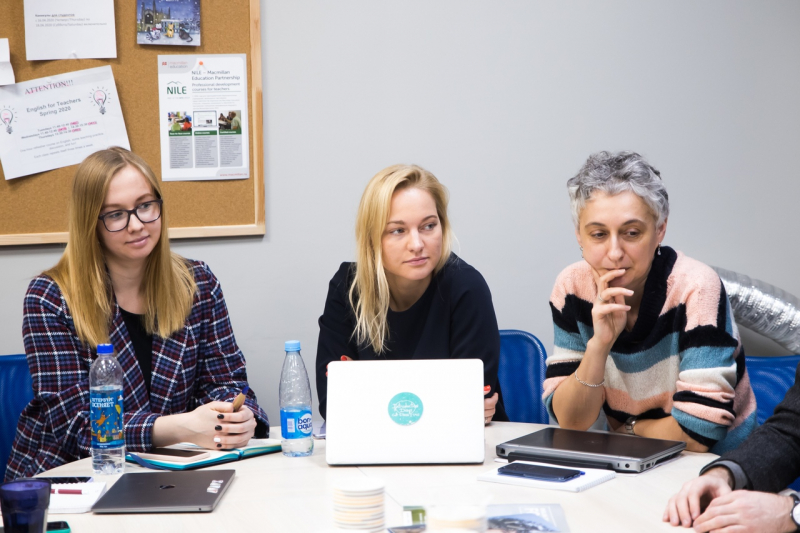
Three weeks in Boston: the results
Each lecturer participating in the Boston internship has already undertaken the basic EMI course at ITMO and actively incorporates the studied methods in their Russian and English courses. For them, the trip to the US became an opportunity to explore teaching practices at another university and take away something useful for their own curriculum.
“It was great to immerse myself into this environment and see how the methodology looks in action. I liked that the program united theory, group tasks and observing the work of the university’s lecturers. What I noted for myself personally was the idea of documenting the requirements for students and the course. The gist of it is that at the beginning of the course, I hand out the rules every student should read and keep in mind – these are the arrangements and frameworks within which both parties will be working throughout the semester. This is valuable because this document regulates our interactions and provides them with clarity and objectivity. Another practice I plan to introduce will be making learning materials public beforehand. These are digests, useful extracts, and links to resources which students can familiarize themselves with before the classes. It’s important for me because my course is attended by people with different backgrounds, which makes it difficult to cater to everyone. And, using such preview lessons, I can rest assured that those who didn’t understand something during the class can get the full picture by re-reading the materials a couple of times,” shares Vasily Leonenko, a lecturer at ITMO University’s Institute of Design and Urban Studies.
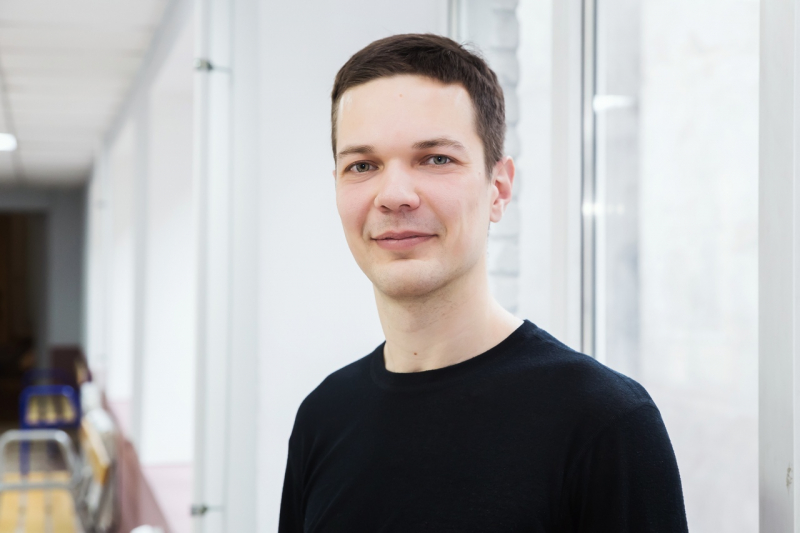
Kristina Ivanova, the director of the Foreign Language Training Center, noted that she’s glad of the opportunity that was made available to ITMO University lecturers.
“Our lecturers from a range of very different faculties had the chance to spend as many as three weeks in Boston, meet their colleagues and students from Boston University and MIT, and learn something new. It’s great that many of them came back with ideas of which tools they could apply in their classes and, what’s more, of what direction ITMO University could develop towards,” says Kristina Ivanova.
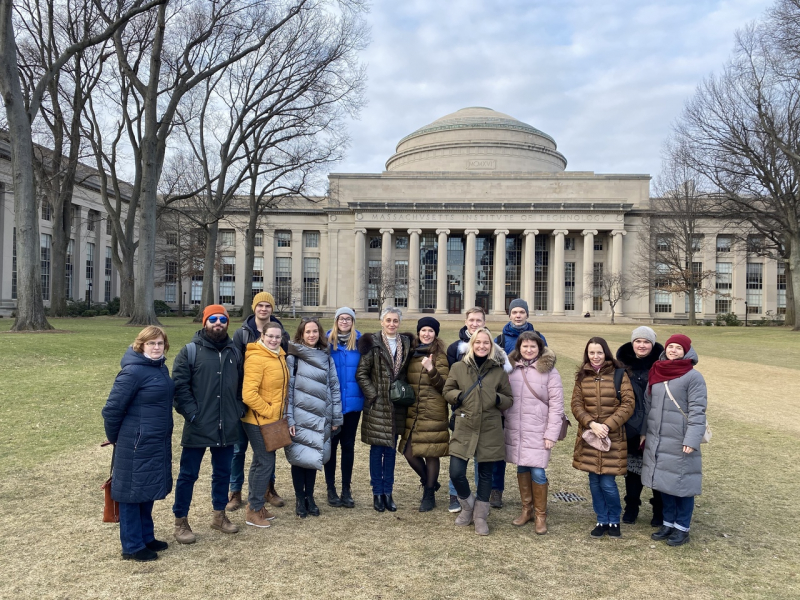
The lecturers returned from Boston with unusual ideas, among which, for example, was organizing mixed courses for Russian-speaking and international students.
“I teach corporate technological management to international students. This is my second trip abroad to explore our international colleagues’ experience – my first one was to the University of York (the UK). I appreciate these opportunities because thanks to these two trips, I now have a coherent picture. In the UK, I saw how the specialists develop a course, equip it with different practices, techniques and approaches, and work with students. As a result, this information allowed all the participants of the trip to develop a basis for their course. The US trip was more focused on observing the implementation of the EMI method in practice. Some of this I marked as potential ideas, something I can already implement in my course to make it more interesting, informative and in-depth. Apart from this, I plan to continue the practice of mixed groups where Russian and international students work alongside each other. I’m sure that it’s useful for both sides: both in terms of studying the subject, mastering the information analysis methodology and presenting works. I think that there are many things the students can teach each other,” comments Anastasia Pavlova, senior lecturer at the Faculty of Food Biotechnologies and Engineering.
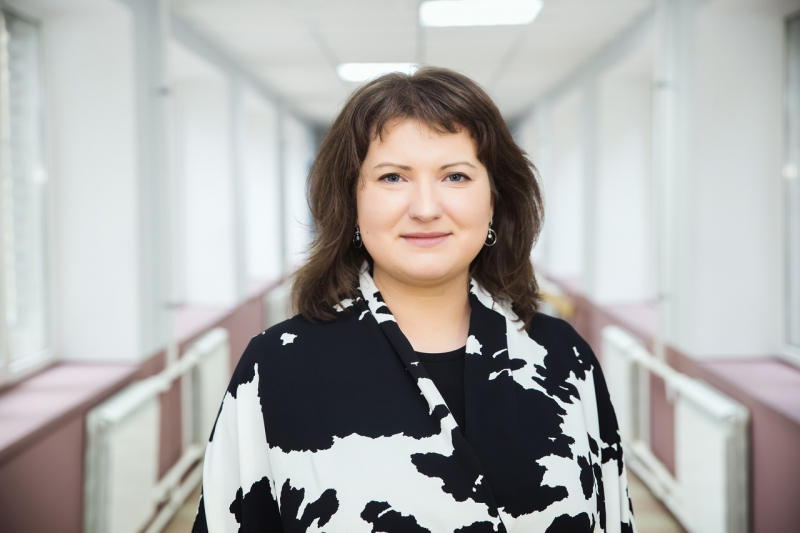
International internships are an opportunity to not only take note of new ideas and practices but also discover the differences in the approaches. For one, Anastasia Nikulenko, the academic director at the Foreign Language Training Center who also participated in the three-week course in the US, noticed the difference in how language support is provided to students in Russia and an English-speaking country.
“We offer more English language support to our international students, which is a polar opposite of how things are in the US. The studies are conducted in English in the first place, so if a student comes to an American university, it’s them who have to concern themselves with having the necessary language competencies. Speaking about active learning methods, it was interesting to observe in which subjects they are used more often and what this is substantiated by. We will of course analyze all the experience obtained and review the format and program of the EMI training at ITMO University – maybe we’ll shift the emphasis to particular topics, remove some aspects, and accentuate other ones instead,” noted Anastasia Nikulenko.
